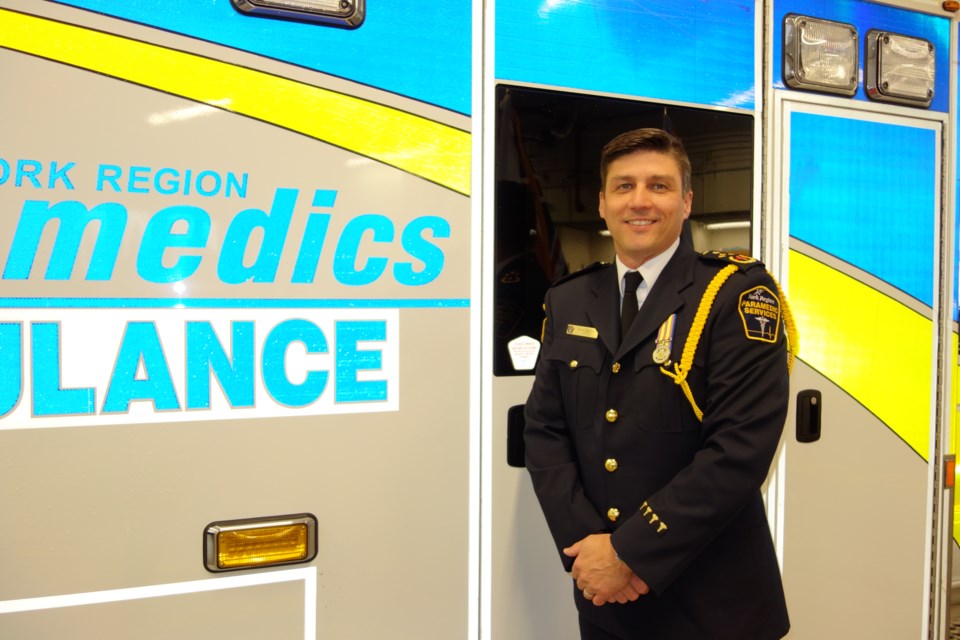On-the-job violence against York Region Paramedic Service members is a chronically underreported problem, according to the service's chief, Chris Spearen.
Both he and the union representing local paramedics want York Region to follow the lead of its counterparts in Peel Region in investigating the issue.
According to Spearen, violence against paramedics can take the form of verbal abuse, physical assault and sexual harassment, often from patients. It happens regularly but is often not reported because there is a perception that it is a hazard of the job.
But he argues that it has wide-reaching affects on the mental well-being of his crew members and that acceptance of it needs to stop.
"It has almost become part of the culture among paramedics that you will encounter these things on the job. One of the challenges we have is not really knowing just how big the problem is. The survey done by Peel showed that 98 per cent of (paramedics) encountered violence against them at some point during their career, but overt reports of violence are rare, unfortunately," said Spearen.
"We need to do some work to find out how bad it is locally. In 2020, we only had 17 reports of violence against paramedics. But I can tell you that, based on my own career as a paramedic, that number is really low.
"It is important to highlight this issue and to change the culture among paramedics and to take it very seriously."
Last week, York regional council received the report from their counterparts in Peel Region outlining the findings of their own investigation on the issue and calling on the federal government to amend Canada's Criminal Code to provide greater protections for paramedics on the job.
Katherine Grzejszczak, president of CUPE Local 905, which represents York Region's paramedics, said she hopes Peel's call for action will cause regional council to look seriously into the problem locally.
"As the union representing 600 paramedic workers that serve our community, we want to actively participate in any systematic review of violent incidents and propose solutions, including surveying frontline paramedics, improving processes for reporting and attending to incidents of violence, and access to appropriate mental health-care benefit coverage for frontline workers," said Grzejszczak.
Spearen, agrees, saying he would like to see the region do its own version of the survey at the heart of Peel's report.
In that report, Peel Region explained it has tried to address the problem with measures such as an awareness campaign to tamp down on the perception that violence is normal or an expected part of being a paramedic.
It also worked to create a new incident reporting process. But Peel argues that laws need to be changed to make assaulting on-duty paramedics its own criminal offence, with punishments similar to those for assaulting police.
It is also calling for sector-wide training and reporting measures on the issue.
Spearen said he supports the Peel report, including the recommendation for changes to the criminal code, but that action needs to start locally first.
"Our first step should be to assess the problem among our own paramedics and then look at the steps forward," he said.
York Region council received the report, but nearing the end of a an nearly eight-hour meeting, the issue was not discussed by councillors.
Grzejszczak said the union would welcome a more comprehensive approach that gets at other aggravating factors.
"Widespread problems such as lack of access to housing, inadequate income supports, insufficient mental health and addictions services are all contributors to the abusive behaviour we face daily. The current COVID lockdown measures and associated stressors to our communities exacerbate an already urgent problem," she said.



